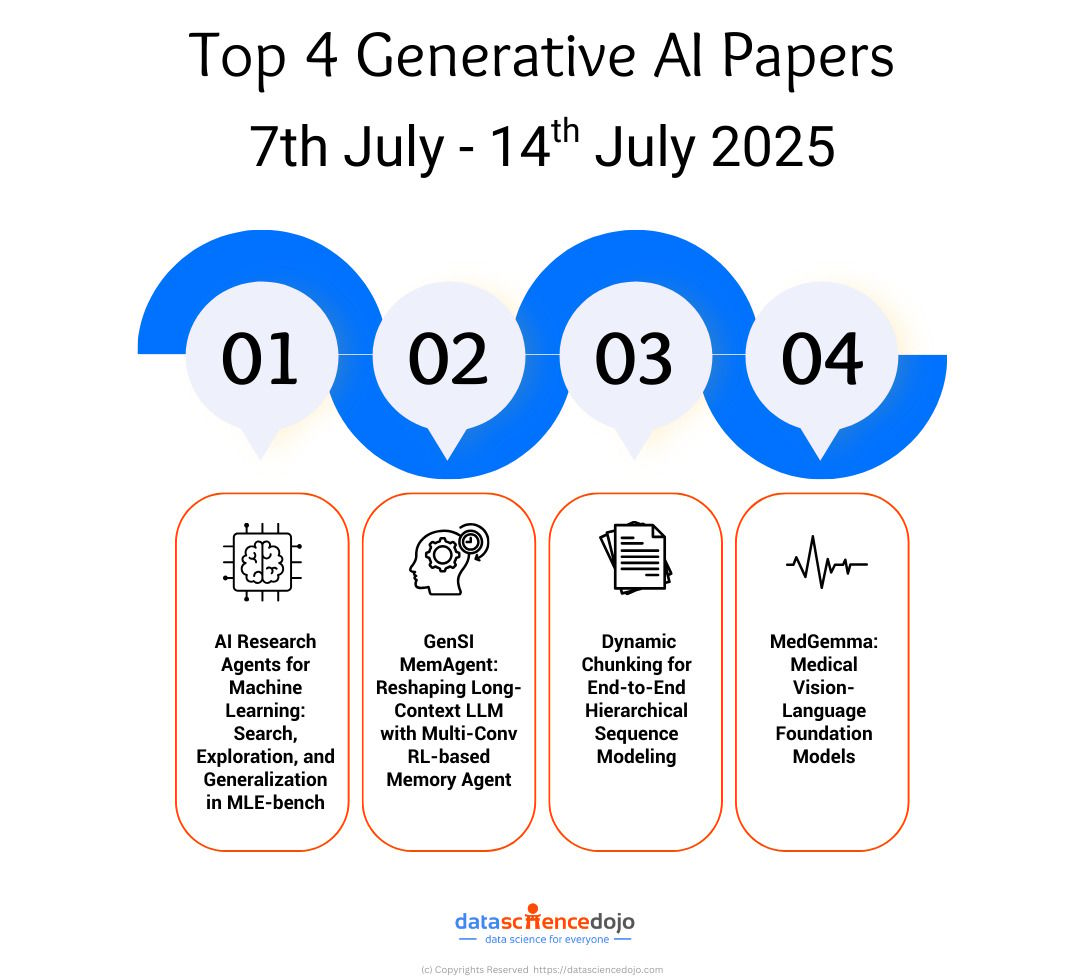- AiNexaVerse News
- Posts
- AI Agents Take Over
AI Agents Take Over
Welcome to AiNexaVerse, your weekly briefing on the AI revolution. This week, we explore the rise of autonomous AI agents, from a new "Agent" mode in ChatGPT to the US military's big bet on agentic AI.
🧠 OpenAI Unveils ChatGPT's New "Agent" Mode
OpenAI just gave ChatGPT a major upgrade, launching a new "Agent" mode that can take actions on your behalf.
📹 Watch the demo
🔍 Why this matters: This transforms ChatGPT from a conversational partner into an autonomous assistant that can book reservations, shop online, and manage tasks, reshaping how we interact with digital services.

This new "Agent" mode represents a monumental leap from passive conversational AI to an active digital assistant. Unveiled over the July 19-20 weekend, this feature empowers ChatGPT to autonomously perform tasks using a built-in browser and various plugins. For builders and developers, this opens up a new frontier for agentic integrations and complex workflow automation. Early feedback from paying subscribers, who have exclusive access, highlights the system’s impressive ability to handle multi-step tasks that previously required significant manual effort. The underlying technology suggests a deeper integration with external services and APIs, setting the stage for a future where AI can manage our digital lives with minimal oversight.
🧠 AWS Launches "AgentCore" for Enterprise AI
Amazon is doubling down on enterprise AI with AgentCore, a new toolkit for building custom AI agents at scale.
📹 See the announcement
🔍 Why this matters: AgentCore signals a major shift toward autonomous AI in business, empowering developers to create sophisticated agents for automating complex, multi-step business processes and driving operational efficiency.
Announced at the AWS Summit on July 16, AgentCore provides a comprehensive suite of seven agent services and an AI Agents Marketplace for pre-built plugins. This toolkit is designed to help enterprises build, deploy, and manage custom AI agents that can interact with various applications and respond to changing conditions with minimal human input. For developers, this provides a powerful platform for creating integrated, AI-driven enterprise solutions. Amazon also announced a $100 million fund to support startups building "agentic AI" solutions, further accelerating innovation in this space and positioning AWS as a central player in the enterprise AI revolution.
Unlock the Power of AI With the Complete Marketing Automation Playbook
Discover how to reclaim your time and scale smarter with AI-driven workflows that actually work. You’ll get frameworks, strategies, and templates you can put to use immediately to streamline and supercharge your marketing:
A detailed audit framework for your current marketing workflows
Step-by-step guidance for choosing the right AI-powered automations
Pro tips for improving personalization without losing the human touch
Tools and templates to speed up implementation
Built to help you automate the busywork and focus on work that actually makes an impact.
🧠 Pentagon Awards 200M Contracts for Military AI Agents
The US Department of Defense is investing heavily in autonomous AI, awarding contracts worth up to 200 million each to OpenAI, Google, Anthropic, and xAI.
📹 Read the announcement
🔍 Why this matters: This represents a significant government endorsement of agentic AI, signaling the military's embrace of autonomous systems for national security and creating a major new revenue stream for AI companies.
The contracts, announced on July 14, are focused on developing "agentic AI" systems for a range of national security applications. This move underscores the strategic importance of autonomous AI in modern defense and highlights the dual-use nature of these powerful technologies. The decision to award contracts to both established players and newer startups like xAI indicates a strategy of fostering competition and innovation in the defense AI sector. This development also brings to the forefront important ethical considerations about the militarization of AI and the need for robust safety and control mechanisms for autonomous systems in high-stakes environments.
🧠 Zoom Transforms into an AI-Powered Productivity Hub
Zoom is evolving beyond video calls, launching a Custom AI Companion that acts as a central hub for productivity.
📹 Explore the features
🔍 Why this matters: This positions Zoom as a direct competitor to integrated work platforms, leveraging AI to automate workflows and keep users within its ecosystem for a wider range of tasks.

The new Custom AI Companion, available as a $12/user/month add-on, enables autonomous task orchestration across more than 16 popular third-party applications, including Slack, Salesforce, Notion, and Google Drive. Users can issue natural-language commands to the AI, which can then pull information from databases, log support tickets, post summaries to team channels, and fetch files without the user ever leaving the Zoom interface. This move reflects a broader industry trend of integrating agentic AI capabilities into existing platforms to create unified, intelligent work environments and significantly boost user productivity by automating tedious cross-platform tasks.
🧠 AI Research Agents Achieve 47.7% Kaggle Medal Rate
A new research paper introduces a framework for AI agents that can autonomously design, implement, and optimize machine learning models, achieving impressive results in competitive data science.
📹 Read the paper
🔍 Why this matters: This represents a significant step toward AI systems that can conduct independent scientific research, potentially accelerating the pace of discovery across numerous fields.

The paper, published between July 7 and 14, details the AIRA-dojo framework, a systematic approach for building and benchmarking AI research agents. These agents were tested on MLE-bench, a challenging benchmark where they competed in Kaggle-style competitions. The best-performing agent achieved a Kaggle medal success rate of 47.7%, a significant improvement from the previous baseline of 39.6%. The research highlights that the design of the operators—the actions the agents can take to modify solutions—is more critical than the search policy itself. This work not only sets new standards for transparency and reproducibility in agent-based AI systems but also provides a valuable open-source framework for further development.

